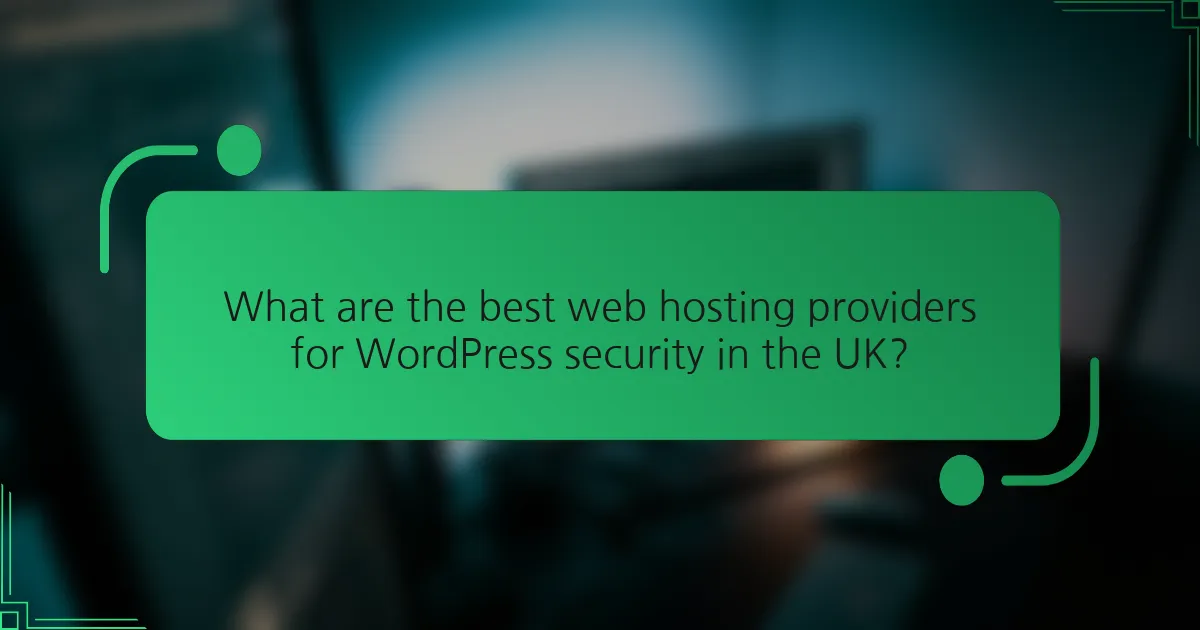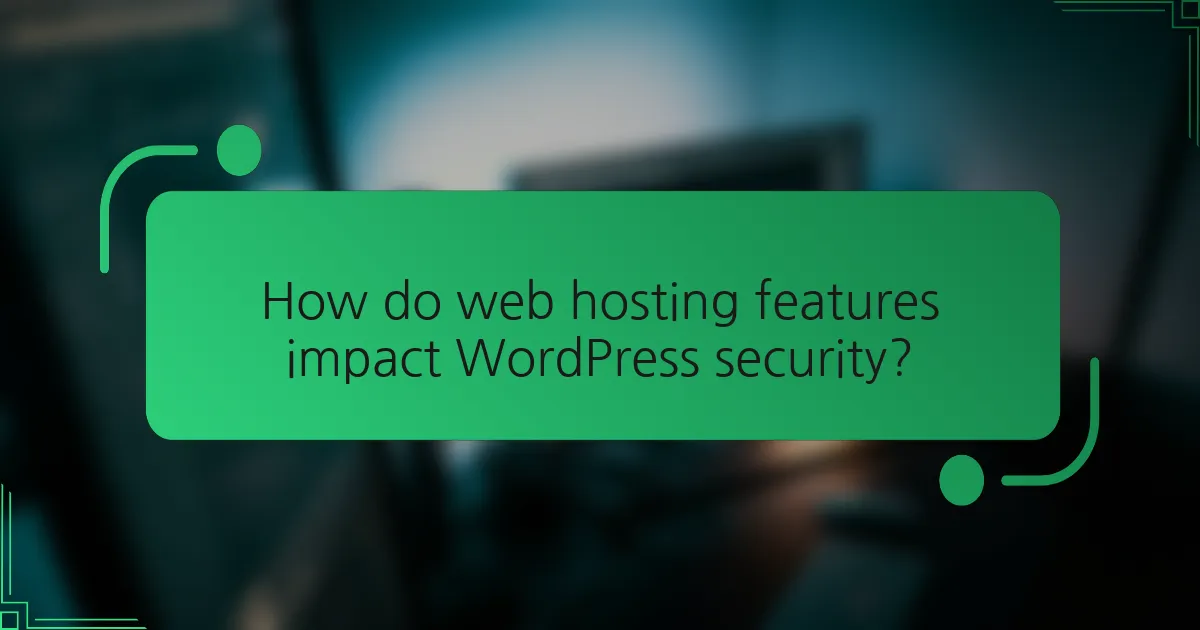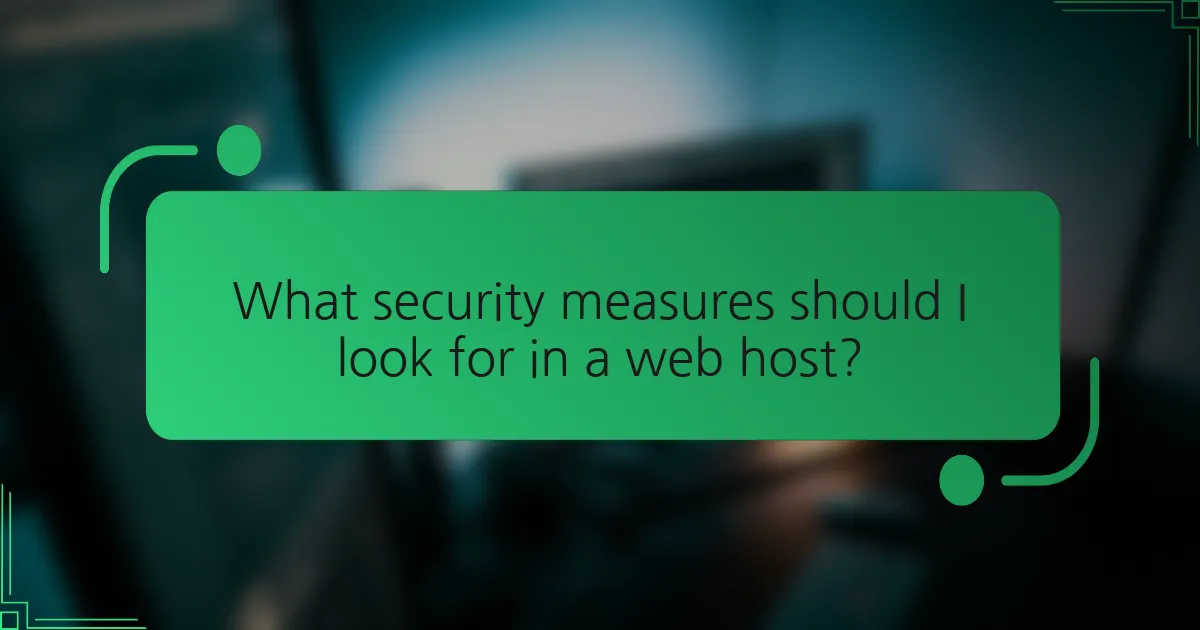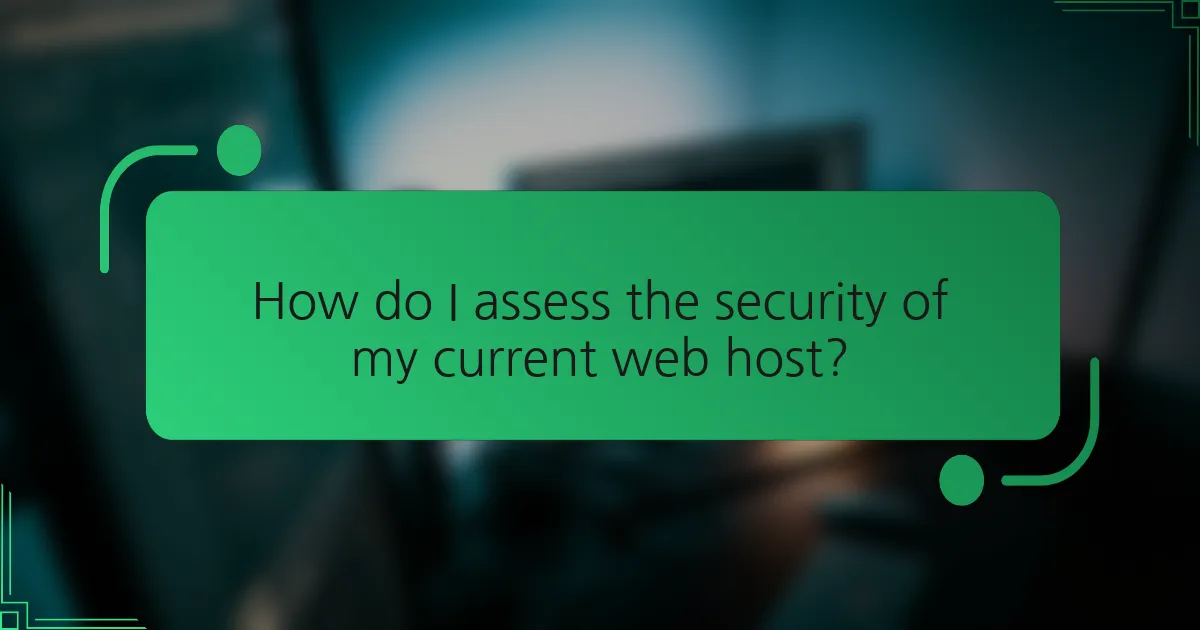When it comes to securing your WordPress site, choosing the right web hosting provider is essential. Top providers in the UK offer a range of robust security features, including SSL certificates, regular backups, and malware scanning, all designed to protect your site from potential threats. By prioritising these security measures, you can ensure a safer online presence and maintain the integrity of your data.

What are the best web hosting providers for WordPress security in the UK?
For WordPress security in the UK, top web hosting providers offer robust features like SSL certificates, regular backups, and malware scanning. These providers prioritise security measures to protect your site from threats, ensuring a safer online presence.
SiteGround
SiteGround is renowned for its strong security protocols, including daily backups and proactive monitoring. They offer a free SSL certificate and employ AI-driven anti-bot systems to thwart malicious attacks.
Consider their managed WordPress hosting plans, which come with automatic updates and enhanced security features. This makes SiteGround a solid choice for both beginners and experienced users focused on security.
Bluehost
Bluehost provides a secure environment for WordPress sites with features like free SSL and a dedicated IP option. Their security measures include site backups and a comprehensive security suite that protects against common vulnerabilities.
They also offer a user-friendly interface, making it easy to manage security settings. However, users should regularly monitor their sites and consider additional security plugins for enhanced protection.
WP Engine
WP Engine is a premium managed WordPress hosting provider that excels in security. They offer daily backups, SSL certificates, and a built-in firewall to safeguard your site from attacks.
With their focus on performance and security, WP Engine is ideal for businesses that require high uptime and fast loading speeds. Their support team is also well-versed in security best practices, providing valuable assistance when needed.
Hostinger
Hostinger offers affordable hosting plans with solid security features, including free SSL and daily backups. Their security system includes a custom-built firewall and DDoS protection to keep your site safe from threats.
While Hostinger is budget-friendly, users should be proactive about implementing additional security measures, such as using strong passwords and regular software updates, to further enhance their site’s security.
DreamHost
DreamHost stands out with its commitment to security, offering free SSL certificates and automated backups. Their security features include a built-in firewall and malware scanning to protect WordPress sites effectively.
DreamHost also provides a 97-day money-back guarantee, allowing users to test their services without long-term commitment. This flexibility, combined with strong security measures, makes DreamHost a reliable option for WordPress hosting in the UK.

How do web hosting features impact WordPress security?
Web hosting features play a crucial role in enhancing the security of WordPress sites. Key elements such as SSL certificates, firewall protection, daily backups, and malware scanning can significantly reduce vulnerabilities and protect against various threats.
SSL certificates
SSL certificates encrypt data transferred between the user and the website, ensuring secure communication. This is essential for protecting sensitive information, such as login credentials and payment details, from interception by malicious actors.
When selecting a hosting provider, ensure they offer SSL certificates as part of their package or allow easy installation. Look for providers that offer free SSL options, such as Let’s Encrypt, to enhance security without additional costs.
Firewall protection
Firewall protection acts as a barrier between your WordPress site and potential threats from the internet. It monitors incoming and outgoing traffic, blocking harmful requests and preventing unauthorised access.
Choose a hosting provider that includes a robust firewall solution, ideally one that offers both hardware and software firewalls. Regularly update firewall rules to adapt to new threats and ensure maximum protection.
Daily backups
Daily backups are vital for restoring your WordPress site in case of data loss due to hacking, server failure, or accidental deletion. Regular backups ensure that you can quickly recover your site with minimal downtime.
Opt for a hosting provider that automatically performs daily backups and allows easy restoration. Verify that backups are stored securely, preferably off-site, to safeguard against data loss in catastrophic events.
Malware scanning
Malware scanning detects and removes malicious software that could compromise your WordPress site. Regular scans help identify vulnerabilities and ensure that your site remains secure against evolving threats.
Select a hosting provider that includes automated malware scanning as part of their service. Additionally, consider using third-party security plugins to enhance your site’s protection and regularly monitor for any suspicious activity.

What security measures should I look for in a web host?
When selecting a web host for your WordPress site, focus on security measures that protect your data and maintain site integrity. Key features to consider include two-factor authentication, regular updates, data encryption, and security audits, as these can significantly reduce vulnerabilities.
Two-factor authentication
Two-factor authentication (2FA) adds an extra layer of security by requiring not just a password but also a second form of verification, such as a code sent to your mobile device. This makes it much harder for unauthorised users to gain access to your account, even if they have your password.
Look for hosts that support 2FA through popular authentication apps or SMS. Implementing 2FA is a straightforward process that can greatly enhance your site’s security posture.
Regular updates
Regular updates to software, plugins, and themes are crucial for maintaining security on your WordPress site. Outdated software can be a significant vulnerability, as hackers often exploit known weaknesses in older versions.
Choose a web host that automatically applies updates or provides easy access to manage them yourself. This proactive approach can help protect your site from emerging threats and vulnerabilities.
Data encryption
Data encryption ensures that sensitive information, such as user credentials and payment details, is securely transmitted and stored. Look for hosts that offer SSL certificates, which encrypt data between the server and the user’s browser.
Additionally, consider hosts that provide end-to-end encryption for stored data. This is particularly important for e-commerce sites handling customer transactions, as it helps comply with data protection regulations.
Security audits
Regular security audits assess your web host’s infrastructure and practices, identifying potential vulnerabilities before they can be exploited. A reputable host should conduct these audits frequently and provide transparency about their findings and resolutions.
Inquire about the frequency and scope of security audits when evaluating potential hosts. A host that prioritises security audits demonstrates a commitment to maintaining a secure environment for your WordPress site.

How do I assess the security of my current web host?
To assess the security of your current web host, start by reviewing their security measures and uptime statistics. These factors are crucial for ensuring your WordPress site is protected against threats and remains accessible.
Review security protocols
Begin by examining the security protocols your web host has in place. Look for features such as firewalls, DDoS protection, and regular security updates. A strong web host should also offer SSL certificates and secure FTP access to safeguard data transmission.
Additionally, inquire about their backup procedures and disaster recovery plans. Regular backups are essential for restoring your site in case of a security breach or data loss. Ensure that these backups are stored securely and can be easily accessed when needed.
Check uptime statistics
Uptime statistics are a key indicator of your web host’s reliability and security. A good web host should maintain an uptime of at least 99.9%, which translates to minimal downtime and better overall performance. Frequent downtimes can indicate underlying security issues or server problems.
Review historical uptime data, which is often available in your hosting dashboard or through third-party monitoring services. Look for patterns in downtime and consider how quickly the host resolves issues. A responsive support team can significantly impact your site’s security and availability.